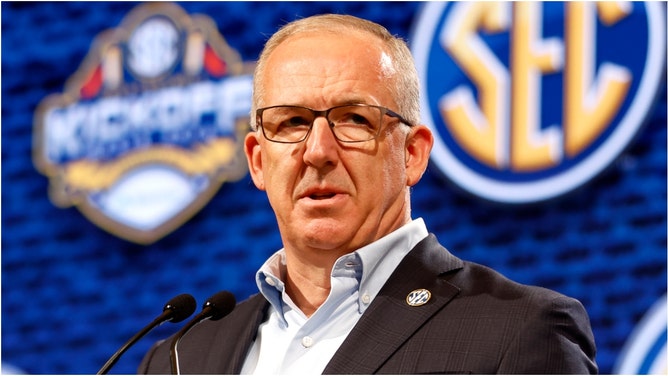Power Conferences Taking Authority From NCAA On Athlete Compensation
There's a monumental shift underway in college athletics, with individual programs set to pay players directly through revenue sharing.
And per a new report, it seems like the conferences are going to take over control of enforcement and compliance within that new framework from the NCAA. The latest in a long series of changes eroding the power and authority of college athletics' largest governing body.
Yahoo Sports reported that at a two-day summit in Washington D.C., a "transition team" moved towards creating an entirely new entity to enforce the new rules in place for revenue sharing in Division I and the FBS. That structure, which would be a new LLC, would have a team to police schools and set up penalties for those who violate rules.
The meeting took place between two athletic directors from the remaining Power Four Conferences: the Big Ten, SEC, ACC and Big 12. Essentially, the NCAA would still handle eligibility and academic issues, but this new entity would be solely responsible for monitoring compliance with payments.

Greg Sankey is discussing the changes the need to be made to the College Football Playoff seeding format. (Credit: Getty Images)
Massive Changes In College Sports Continue
This is a dramatic change in how the power structure of college sports is constructed. For decades, the NCAA has been the sole voice in the room in ensuring compliance with any and all rules. That appears to be rapidly ending.
Revenue sharing was always likely to lead to increased power on behalf of the Power Four schools, but this is the clearest sign yet that we might be heading towards a split.
For the major conferences and their member schools, there might be greater earning potential from divesting from the NCAA entirely. At least for football. A super league of 70ish schools could generate more revenue in television dollars by ensuring more big-name matchups, an expanded playoff, and the renewal of regional rivalries abandoned by realignment.
For now, it also means that schools will be accountable to other programs with revenue sharing, instead of bureaucrats at the NCAA. Doesn't sound like a bad idea.